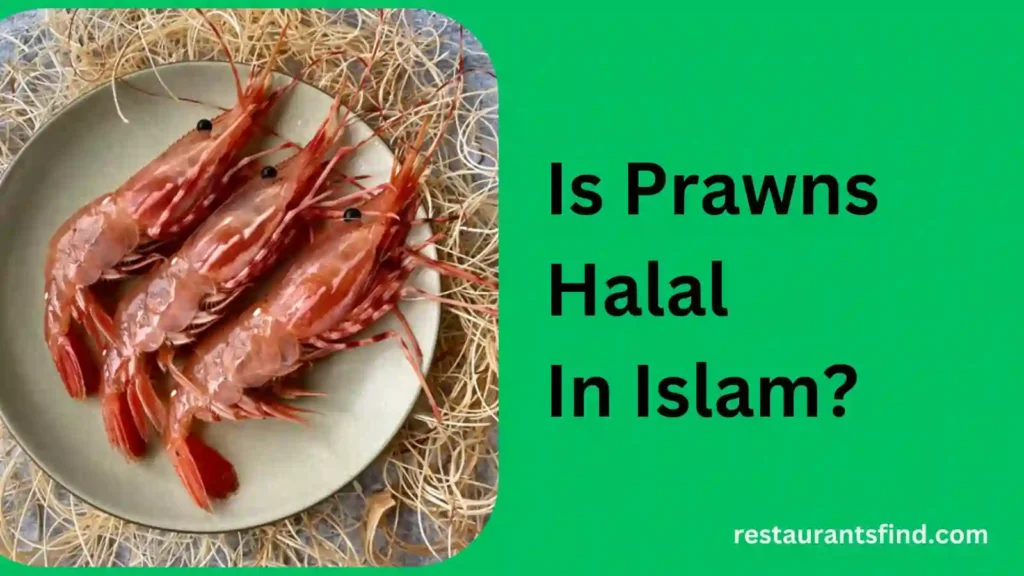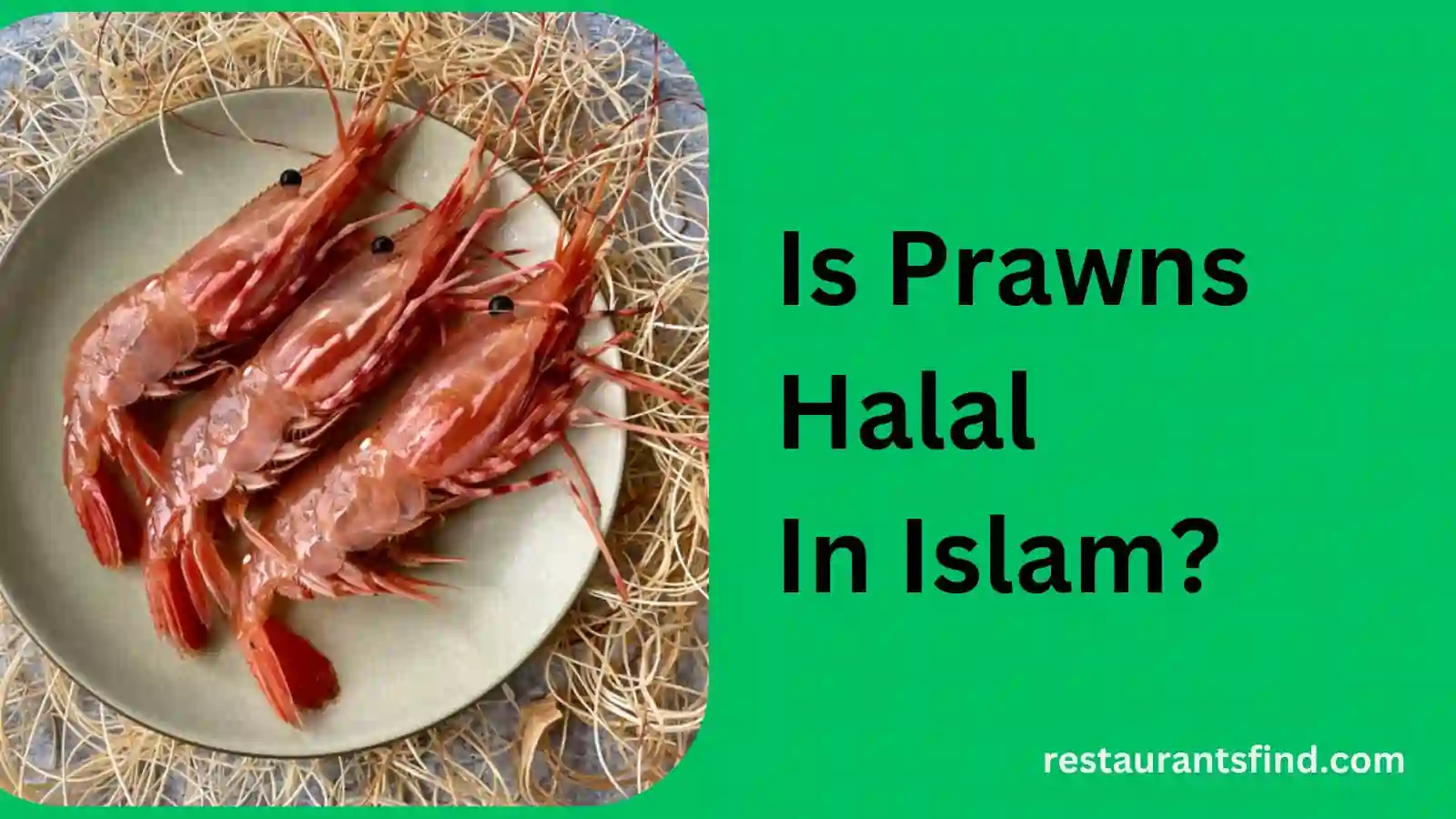The concept of halal is crucial in the Islamic diet since it governs what Muslims can and cannot consume while emphasizing purity and conformity to religious precepts.
One area of debate within Islamic scholarship is the halal status of prawns, a popular seafood delicacy.

The subject is frequently raised: are prawns considered halal? If so, how? This is a contentious issue since people have diverse points of view on it. In this article, we will analyze prawns in Islam from numerous angles and concerns.
The Classification of Seafood in Islam
To find the answer is prawns are halal. We will first see the classification of seafood. In Islamic law, seafood is classified as halal (permissible) or haram (forbidden) based on criteria derived from the Quran, Hadith (the Prophet Muhammad’s sayings and actions), and academic consensus.
The overarching concept is that seafood is deemed halal unless specifically prohibited. Here’s a summary of the classification of seafood in Islamic law:
- Halal Seafood: Halal seafood includes fish with scales and shrimp. This classification is based on specific mentions in Islamic texts as well as scholarly consensus. The Quran addresses the permissibility of eating scaled fish in Surah Al-Maidah (5:96): “Lawful to you is the pursuit of water game and its use for food – for the benefit of yourselves and those who travel.
- Haram Seafood: Seafood that is strictly prohibited includes creatures without scales or fins, such as shellfish (except shrimp), crustaceans like crabs and lobsters, and some types of aquatic mammals like whales and dolphins. These prohibitions are based on several Hadith narrations and Islamic scholars’ interpretations.
Consideration of Different Schools of Thought Within Islam Regarding Seafood
Different schools of thought within Islam have varying interpretations regarding the permissibility of consuming certain types of seafood.
Here’s an overview:
- Shafi’i Fiqh: According to the Shafi’i school of thought, aquatic animals that live exclusively in water are generally permissible to eat. This includes creatures like crabs, lobsters, prawns, and sharks, except for those that are known to be poisonous or harmful.
- Other Schools: While there is a broad consensus among Islamic scholars regarding the permissibility of consuming most types of fish, opinions diverge when it comes to shellfish. Some scholars from the Sunni sect consider shellfish to be halal, meaning permissible for consumption, while others may have reservations or consider them haram (forbidden).
It’s important to recognize that these classifications can vary significantly among different Islamic scholars and schools of thought.
Individual interpretations may differ based on various factors such as cultural context, geographical location, and scholarly analysis of religious texts.
The Case of Prawns
Prawns are small aquatic crustaceans in the order Decapoda, distinguished by their body length and lengthy antennae. They are found in freshwater and marine environments and are a favorite seafood choice in many cultures throughout the world.
Prawns have a slim, segmented body with a large tail fan. They have ten legs, with the first pair expanded into claws. Prawns range in size, with some species reaching several inches in length.
Prawns are highly valued in the cooking world for their sensitive, meaty flesh and subtle flavor. They are adaptable and can be cooked in a variety of ways, including grilling, steaming, boiling, and frying.
Historical Perspectives on the Consumption of Prawns in Islamic Culture
The historical consumption of prawns in Islamic culture has varied by geography and community. While there is evidence of prawn consumption in several Islamic civilizations throughout history, sentiments toward its permissibility have not always been consistent.
Prawns and other shellfish may have been a staple of the local cuisine for millennia in areas where seafood was plentiful and easily available, such as coastal areas.
However, the appropriateness of eating prawns may have been interpreted by scholars and religious authorities, resulting in varying customs within Islamic communities.
Analysis of Whether Prawns Meet Halal Criteria
The halal status of prawns differs according to different schools of Islamic philosophy. While the Shafi’i, Maliki, and Hanbali schools hold that all sea animals are halal, the Hanafi school distinguishes between fish and other sea creatures.
Prawns are controversial in the Hanafi school. Some language specialists and Hanafi scholars identify prawns as fish, deeming them halal. However, because prawns lack a backbone and gills, they are not classified as fish under present zoological classifications.
As a result, some Hanafi scholars may regard prawns as makrooh (unwanted) or even haram (forbidden). This disparity emphasizes the difficulty of understanding Islamic dietary restrictions and the significance of seeking experienced authorities for specific decisions within one’s own tradition.
In summary, the permissibility of prawns in Islam varies across different schools of thought. While prawns are generally considered halal in the Shafi’i, Maliki, and Hanbali schools, there is debate within the Hanafi school.
Some scholars within the Hanafi school classify prawns as halal, while others consider them makrooh (disliked) or even haram (forbidden).
Followers should seek guidance from knowledgeable scholars within their specific Islamic tradition for personalized advice on this matter.
Conclusion
The question of whether prawns are halal is still debated among Islamic academics, with no single, widely acknowledged answer.
Therefore, if asked whether prawns are halal, the response would typically lean towards “no.” Ultimately, the decision to consume prawns rests with the individual Muslim, guided by their chosen religious authority.
Regardless of one’s stance on prawns, adherence to halal guidelines remains an integral aspect of the Islamic faith. Muslims can make informed food choices by understanding various viewpoints and consulting knowledgeable religious authorities.


1 thought on “Is Prawns Halal In Islam?”